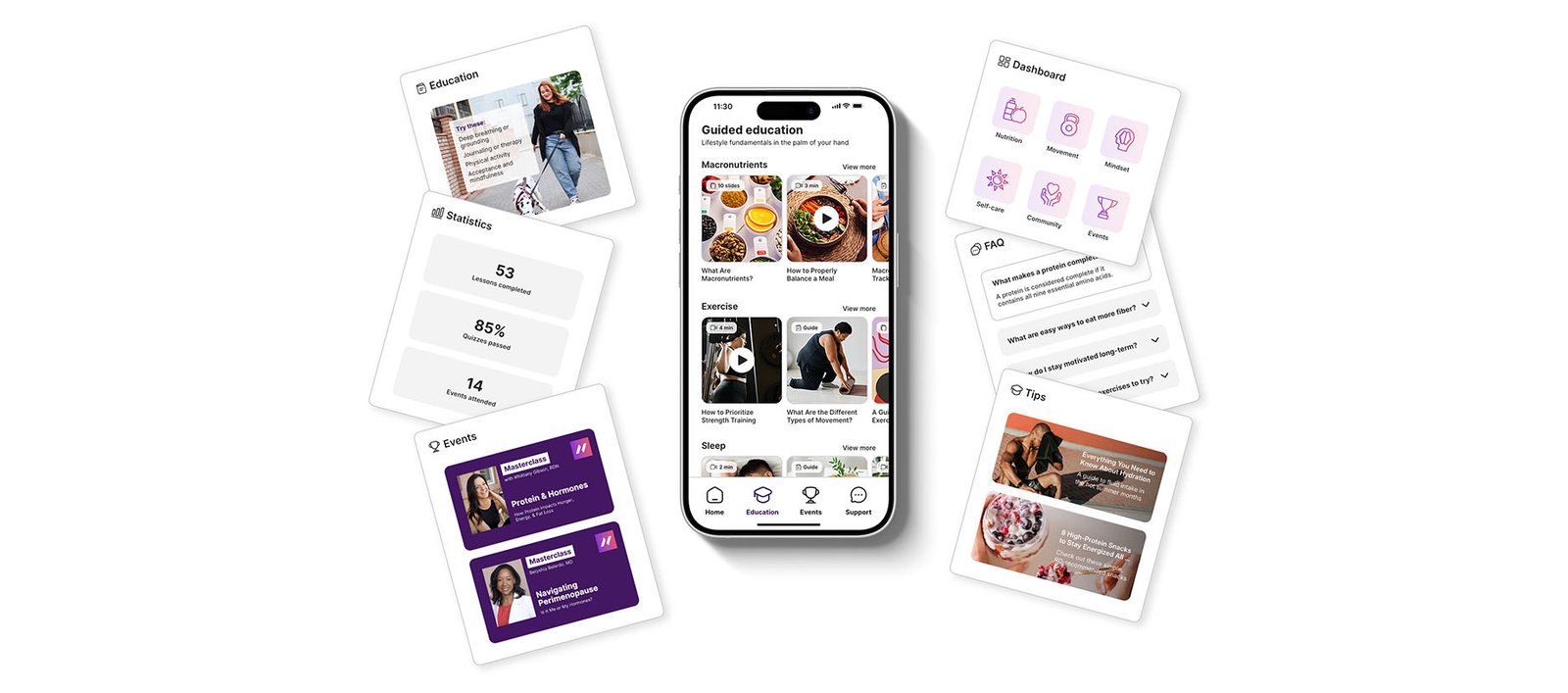Artificial intelligence is everywhere right now. Healthcare headlines are buzzing about AI diagnosing disease, replacing paperwork, even predicting patient outcomes before doctors do.
But here’s the problem: many clinics and even healthcare technology companies are trying to skip a crucial step.
Instead of using AI to support their providers and staff, they’re rushing straight into trying to replace human-centric care. And that’s where things can go wrong at this stage of adoption.
“Clinics rushing to replace human-centric care with AI right now are missing a key point. The real opportunity is using AI to support their efforts first, which builds trust, efficiency, and momentum for more robust adoption later.” Austin Rhoads, Co-Founder, Alterra Health
Through Alterra Health, over 650 private practice providers spanning primary care, medical weight loss, endocrinology, sleep medicine, cardiology, and women’s health use our lifestyle care tools for their patients.
What we see again and again is this: clinics that use AI as a support system (not an immediate substitute) make faster progress, deliver better care, and avoid burnout.
Let’s break it down in this article.

The misstep: Skipping straight to replacement.
Most medical practices hear “AI” and think:
1) Automated intake forms
2) AI chatbots answering patient questions
3) Predictive models that identify obesity or sleep apnea risk
Sure, those are exciting. But if you jump straight into replacement, you run into risks:
Loss of patient trust – patients don’t want to feel like they’re talking to a robot.
Errors without oversight – AI misclassifies symptoms or flags the wrong risks.
Staff pushback – clinicians see AI as competition instead of help.

The crucial step: AI as support.
Instead, practices should first use AI to support the work their teams are already doing. Here are some high-impact, low-risk support use cases:
Chart prep and summaries:
AI can pull a patient’s history, highlight relevant labs, and create a clean summary so providers walk in prepared.
Marketing and outreach:
AI tools can help private practices develop world-class marketing materials without allocating large budgets and/or hiring additional staff – examples include drafting social media posts, email newsletters, or ad copy.
Clinical note assistance:
AI listens during visits, drafts notes, and leaves the physician to review and finalize. Less typing, more eye contact.
Patient education:
AI can generate tailored handouts or follow-up instructions – supporting the conversation the provider already had.
Lifestyle tracking:
Instead of guessing between visits, AI organizes patient-reported data (nutrition, sleep, exercise) into trends the clinician can quickly review.
Follow-up support:
AI nudges patients between visits with reminders or progress check-ins – keeping them engaged, without replacing human outreach.

Why this intermediary step matters.
Using AI as a complementary tool in healthcare is key because it:
Builds trust – staff see AI as a tool that makes their day easier, not something that takes their job.
Improves care quality – clinicians spend more time focusing on patients, less time wrestling with data.
Paves the way for replacement (safely) – once the team is comfortable, you can explore where replacement makes sense.

How Alterra Health is incorporating AI into our products for providers and patients.
When it comes to AI, our near-term Alterra Health roadmap is focused on strengthening clinic impact in two key areas:
🌟 Personalized care plans. Leveraging natural language conversations with AI to help create individualized patient plans that address nutrition, physical activity, stress, recovery, sleep, and overall lifestyle – giving providers a structured, scalable way to extend care beyond the visit.
📈 Dynamic, patient-centered content. Using AI-driven APIs to deliver content that adapts to each patient’s journey – surfacing timely resources, education, and actionable next steps that align with their progress and care plan.
In addition to improving the AI capabilities within our Alterra Health products and services, we’re also committed to educating our community about the proper ways to use AI in healthcare.
We recently interviewed Jane Guo, RD in this segment – How to Improve Your Nutrition with ChatGPT Safely and Effectively

The path forward for medical practices adopting AI.
AI doesn’t have to be an all-or-nothing play. For private practice clinics, the smartest move is to start with supportive use cases that fit naturally into existing workflows.
Think of it as the initial phase of AI adoption. Get comfortable. Build trust. Save your team time. Then, when you’re ready, you can safely explore more advanced applications.
At the end of the day, AI should never feel like it’s replacing care – it should feel like it’s helping to deliver better care.
✅ Curious how leading medical providers are using Alterra Health to deliver world-class lifestyle care for their patients? Check out this Case Study with PrecisionMD and schedule a brief intro call with our team today!
